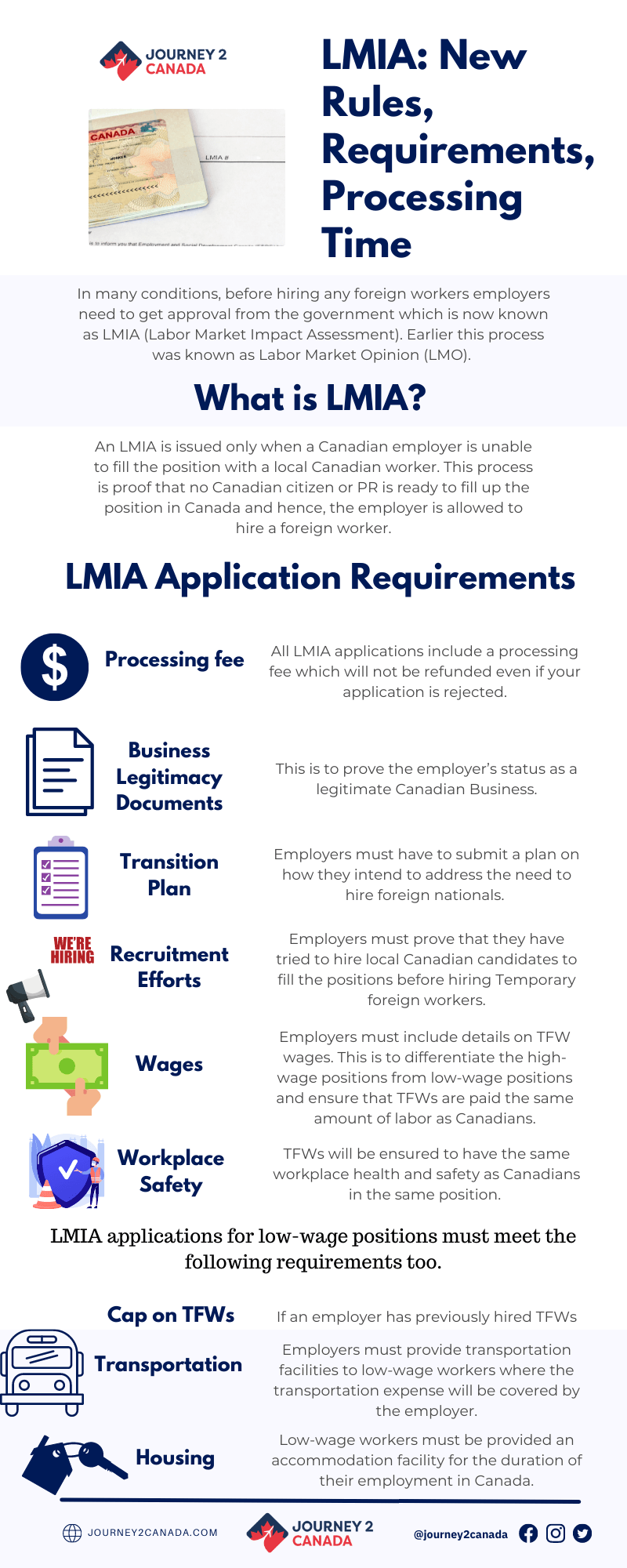In many conditions, before hiring any foreign workers employers need to get approval from the government which is now known as LMIA (Labor Market Impact Assessment). Earlier this process was known as Labor Market Opinion (LMO).
An LMIA is issued only when a Canadian employer is unable to fill the position with a local Canadian worker. This process is proof that no Canadian citizen or PR is ready to fill up the position in Canada and hence, the employer is allowed to hire a foreign worker. In order to get the LMIA, the employer has to advertise the position for at least four weeks and interview Canadian candidates.
Only after proving that no Canadian candidates could fulfill the job description, your business will get a green signal to hire a foreign worker. The worker will then apply for Canadian Work Permit supported by LMIA to start working in Canada.
LMIA Application Requirements
LMIA applications can be submitted in hard copy, or by email to the suitable Service Canada Processing Centre. Following are the requirements for LMIA applications:
- Processing fee: All LMIA applications include a processing fee which will not be refunded even if your application is rejected.
- Business Legitimacy Documents: This is to prove the employer’s status as a legitimate Canadian Business.
- Transition Plan: Employers must have to submit the plan on how they intend to address the need to hire foreign nationals. Eventually, employers are expected to hire local Canadian workers rather than temporary foreign workers.
- Recruitment Efforts: Employers must prove that they have tried to hire local Canadian candidates to fill the positions before hiring Temporary foreign workers (TFW).
- Wages: Employers must include details on TFW wages. This is to differentiate the high-wage positions from low-wage positions and ensure that TFWs are paid the same amount of labor as Canadians.
- Workplace Safety: TFWs will be ensured to have the same workplace health and safety as Canadians in the same position. Employers must prove that TFWs will have the insurance covered with the minimum equivalent health coverage offered by the province where the business is located.
If the employer is submitting the LMIA applications for low-wage positions must meet the following requirements too.
- Cap on TFWs: If an employer has previously hired TFWs
- Transportation: Employers must provide transportation facilities to low-wage workers where the transportation expense will be covered by the employer.
- Housing: Low-wage workers must be provided the accommodation facility for the duration of their employment in Canada.
LMIA Processing Time
Canada experiences a large volume of LMIA applications and this could result in extended processing times and longer delays. Application processing time would vary depending upon the type of application. Book your appointment with Journey2canada immigration consultant to know more about the LMIA process.
New Rules for LMIA Canada 2022
Canada has slightly updated the rules for LMIA. Under the new LMIA system job, applications are categorized into 2 types: High-wage and low-wage.
- High-wage: Salary is equal to or exceeds the median wage in the province.
- Low-wage: Salary below the median.
The Application fee for LMIA requests is now changed to $1000 per worker which is an increase from $275 per worker fee for LMOs.




